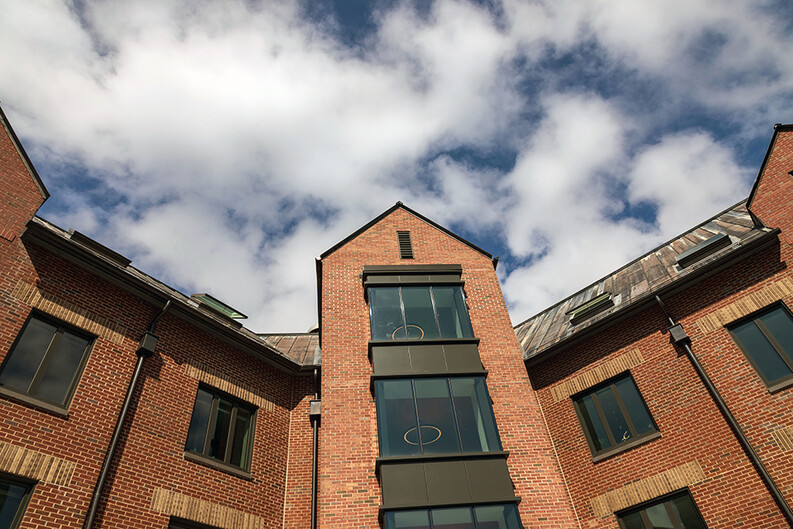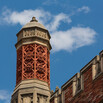Conference Hosts Conversations on Threats to Transparency and the Media

The Access and Accountability Conference4 (AAC) returned for its sixth edition this year, held in person for the first time since the start of the pandemic in 2020. Organized by the Media Freedom and Information Access Clinic5 (MFIA) and the Floyd Abrams Institute for Freedom of Expression6 at Yale Law School, the gathering of legal scholars, practitioners and journalists continued its focus on protecting newsgatherers, promoting transparency, and enabling government accountability on Oct. 14 and 15.
“AAC has evolved into an important annual tradition, providing a platform for top practitioners and scholars from around the nation to discuss strategies for making government more transparent and to defend First Amendment rights,” MFIA Director David Schulz ’78 said. “We are grateful to the foresight of the Knight Foundation and the Democracy Fund who recognized the value in creating this forum to nurture and leverage the important work being done in this area by law school clinics across the country.”
The first day of this year’s conference convened six panels around the theme “Social Change and Social Media: Identifying and Addressing Evolving Threats to Government Accountability.”
Discussion topics ran the gamut of threats to government accountability and transparency failures in 2022. The day began with a conversation on the rise of private platforms for alternative dispute resolution and the implications of this privatization of justice on public health and safety. MFIA alum Meenakshi Krishnan ’18 moderated the panel. The day ended with a panel on the recent wave of efforts to proscribe topics discussed in classrooms, ban books from libraries, and prevent boycotts as a form of protests.
Other discussions addressed the dramatic shortcomings of Freedom of Information laws to provide meaningful police accountability, the concerns presented by the growing collaboration among state and federal agencies in their sharing of data and surveillance of citizens, the scope and nature of rights provided to “the press” by the First Amendment, and ways to rethink transparency for the Intelligence Community.
Participants included scholars of democracy and the First Amendment including Arthur Liman Professor of Law Judith Resnik and Sterling Professor of Law Robert Post ’77, prominent First Amendment practitioners, journalists, and law school clinicians. Among those presenting were UC Berkeley’s Catherine Crump, SMU Deadman School of Law’s Tom Leatherbury ’79, and Northwestern’s Jonathan Manes ’08. Journalists participating included Charlie Savage MSL ’03 of The New York Times, Suhad Babaa of Just Vision Media, Intercept reporter Chris Gelardi, former USA Today reporter Toni Locy, and PEN America’s Suzanne Nossel.
In addition to presenting moderated panel discussions, AAC provides a venue for law school clinics gather to share experiences, challenges, and strategies. This year’s second day was dedicated to exploring the role clinics can play in supporting local news organizations. Clinic students from around the country presented success stories from their work providing legal help to journalists. Conversations spurred ideas on how to build more effective legal infrastructures to sustain the crucial work of newsgatherers.
“We’re trying to develop a much broader legal strategy at the Knight Foundation and coming to this conference is helping crystallize what we’re putting money into,” Jim Brady, Director of the Journalism Program at the Knight Foundation, said in opening remarks for the day. “AAC was a really core event for us to take learnings from and try get a lot more people involved in defending the media in this moment of crisis.”
The conference came to a close with an open meeting of the steering committee of the Free Expression Legal Network, a nationwide coalition of clinics, academics and practitioners focused on promoting and protecting free speech, free press, and the free flow of information to an informed and engaged citizenry.
The Access and Accountability Conference was made possible by the support of the John S. and James L. Knight Foundation Democracy Fund Legal Clinics Fund.
The Media Freedom and Information Access Clinic7 (MFIA) is a law student clinic dedicated to increasing government transparency, defending the essential work of news gatherers, and protecting freedom of expression by providing pro bono legal services, pursuing impact litigation and developing policy initiatives.
The Floyd Abrams Institute for Freedom of Expression6 at Yale Law School promotes freedom of speech, freedom of the press, access to information and government transparency. The Institute’s activities are grounded on the belief that collaboration between the academy and the bar will enrich both scholarship and practice.


